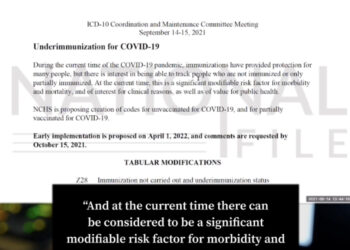Last Updated on November 11, 2019
From January 1st 2020, YouTube will no longer show targeted advertisements on content that is “child directed” after being fined by the FTC for violating COPPA.
In September, the FTC voted 3-2 to fine YouTube $136 million for allegedly violating the Children’s Online Privacy Protection Act (COPPA). Google also paid New York state another $34 million to settle similar allegations.
COPPA is a piece of federal legislation from 1998 that was initially designed to protect children from giving out any identifying information to predators, and prevented “operators” of websites from collecting the data and information of anyone under 13.
It was amended in 2013 by the FTC to include in its definition of “operators” to anybody who posted on sites like YouTube and expanded its definition of “personal information” to include web cookies or anything else required for targeted advertising.
YouTube previously did not enforce these rules, but agreed to do so from January 1st 2020 in the settlement from September.
From that date, any content on the site that is deemed to be “directed to children” will not be allowed to run targeted advertisements. Content creators will have to confirm before uploading whether their videos fall into this category, and all previously uploaded content must also categorised.
READ MORE: YOUTUBE CZAR: All Content Creators Welcome on YouTube
TubeFilter asked creators to disable personalised ads on their channel for a few days as a test of the new rules, and found that they saw a loss of revenue “somewhere between 60% to 90%”:
If a video on a given channel could generate $100 in revenue for a creator right now with personalized ads running, categorizing the video as “directed to children” (and therefore removing the personalized ads) would mean the video’s revenue would drop to somewhere between $10 and $40.
Creators who tried to skip out on the categorisation could face fines of up to $42,000 per video if the FTC determined their content was child directed.
Jeremy Johnston, whose YouTube channel “J House Vlogs” has more than 2 million subscribers, started a petition on Change.org to the FTC to get them to reverse the rule change.
At the time of writing, the petition has over 50 thousand signatures. Johnston claims in the petition that “shutting off personalized ads on creators’ content will cause more harm than good, especially for children”:
Quality family-friendly content will shrink, while more mature content will grow – yet kids will still be watching. The FTC should not expand COPPA regulations for content creators. Broadening the definition of “child-directed” to include “child-attractive” would force many more creators to turn off personalized ads. As a result, even more quality content will dry up, and more mature and extreme content will fill the platform… While large corporations will survive these changes, small business creators face terminating employees, changing their business model, or shutting down production altogether. These regulations will particularly hurt young underserved audiences who participate in YouTube communities on topics like special needs, faith, and minority groups.
The petition to the FTC notes that there is really no need for the changes to go into effect, as a solution already exists for parents who are concerned about their children’s privacy – the YouTube Kids app already does not run targeted advertising.
READ MORE: Joey Saladino Censored by YouTube for Questioning Epstein Suicide
Melissa Hunter, another organiser of the petition said that “child-attractive” could really apply to anything on YouTube. “We feel that’s way too broad. And that shows a lack of understanding about YouTube.”
Johnston told Bloomberg that he had met with FTC commissioners to talk about the issue, and said he was “surprised about how little they knew about the YouTube creator perspective,” but that the meetings were “really productive.”



















